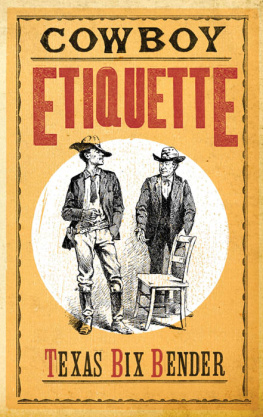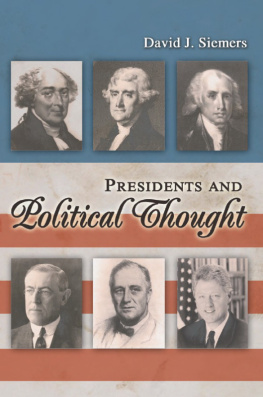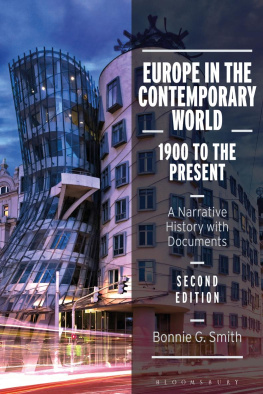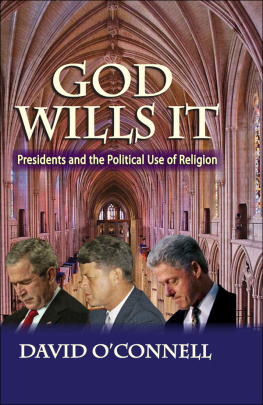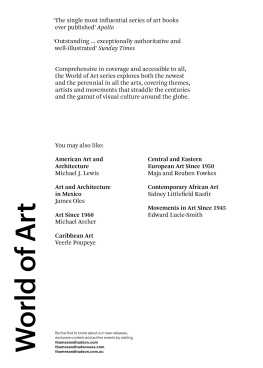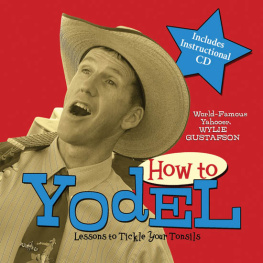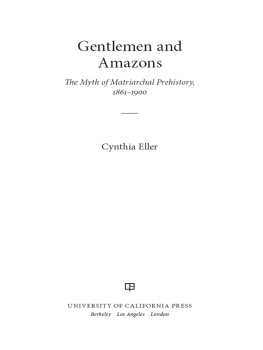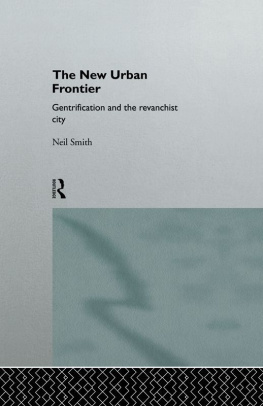COWBOY PRESIDENTS
The Frontier Myth and U.S. Politics since 1900
DAVID A. SMITH
UNIVERSITY OF OKLAHOMA PRESS
NORMAN

2800 Venture Drive
Norman, Oklahoma 73069
www.oupress.com
Copyright 2021 by the University of Oklahoma Press, Norman, Publishing Division of the University. Manufactured in the U.S.A.
All rights reserved. No part of this publication may be reproduced, stored in a retrieval system, or transmitted, in any form or by any means, electronic, mechanical, photocopying, recording, or otherwiseexcept as permitted under Section 107 or 108 of the United States Copyright Actwithout the prior permission of the University of Oklahoma Press.
For information about permission to reproduce selections from this book, write to Permissions, University of Oklahoma Press, 2800 Venture Drive, Norman, Oklahoma 73069 or email .
ISBN 978-0-8061-6848-7 (hardcover)
ISBN 978-0-8061-6948-4 (ebook : mobipocket)
ISBN 978-0-8061-6969-9 (ebook : epub)
This eBook was converted from the original source file by a third-party vendor. Readers who notice any formatting, textual, or readability issues are encouraged to contact the publisher at .
For my parents
Jack and Doreen Smith
in their sixty-ninth year of marriage
With love
CONTENTS
ACKNOWLEDGMENTS
Cowboy Presidentsis based on my PhD dissertation. Much of the credit for anything worthwhile in this book, and none of the blame for its faults, go to my gifted PhD supervisor, Keith Carlson, who provided numerous key foundational ideas and insights, kept me on track, and offered his extensive knowledge generously from day one. My thanks also goes to Gary Zellar, for his enthusiasm, support and knowledge of character studies, and important guidance and contributions to earlier drafts of the work. My PhD committee members were all a great pleasure to work with: Bill Bartley and Lindsey Banco shared their literary and cinematic knowledge and made key revisions to the study, and Natalia Khanenko-Friesen brought her important anthropological perspective to this endeavor. Thanks also to my committee chair, Richard Julian, and to the faculty and staff in the Interdisciplinary Studies Department and Graduate Studies at the University of Saskatchewan, who were incredibly supportive.
Two mentors from my six years as an undergraduate and masters student at the University of Victoria must be acknowledged here. Ted Wooley, an inspiring professor, MA supervisor, and friend: you are very much missed. And the brilliant Brian Dippie, whose own scholarship provided much of the intellectual foundation for this book. Their respective enthusiasm for US politics and the American West were highly contagious.
University of Oklahoma Press (OUP) managing editor Steven B. Baker, independent copy editor Bob Land, then editor in chief Adam C. Kane, and the staff all made this publishing experience an entirely positive and fulfilling one. Special thanks to then OUP director B. Byron Price, whose sole-authored Cowboys and Presidents edition of Convergence(springsummer 2008) helped spark the idea for this study a dozen years ago.
I met several outstanding archivists and librarians who went the extra mile to help me track down many resources and contacts vital to this project. The LBJ Library in Austin is a model institution, and I have many people to thank for my two weeks research experience there, including subject archivists Allen Fisher, Liza Talbot, Barbara Cline, and John Wilson; Margaret Harman in A/V collections; registrar Michael MacDonald; along with reference archivists Lara Hall, Brian McNerney, Scott Seely, and Will Clements. My special thanks to Sharon Kilzer, project manager of the Theodore Roosevelt Center at Dickinson State University, and staff who were simply amazing in providing a plethora of TR resources all brought together in one location (and just down the road aways from Saskatoon). The staff of the Ronald Reagan Library in Simi Valley, California, provided advice and access to some especially fascinating audiovisual and campaign materials.
Key financial support for this dissertation came from a Moody Research Grant through the Lyndon Baines Johnson Foundation, a White House Historical Association Research Grant, University of Saskatchewan sabbatical grant, and the University of Saskatchewan Library.
Thanks to the University of Saskatchewan Library for its strong relief support at key stages of the project and to my wonderful colleagues in the University of Saskatchewan Library: Diana Kichuk, Deborah Lee, and Susan McConkey. Special thanks to librarians extraordinaire Donna Canevari de Paredes and Ken Whiteway for their encouragement and constant support.


